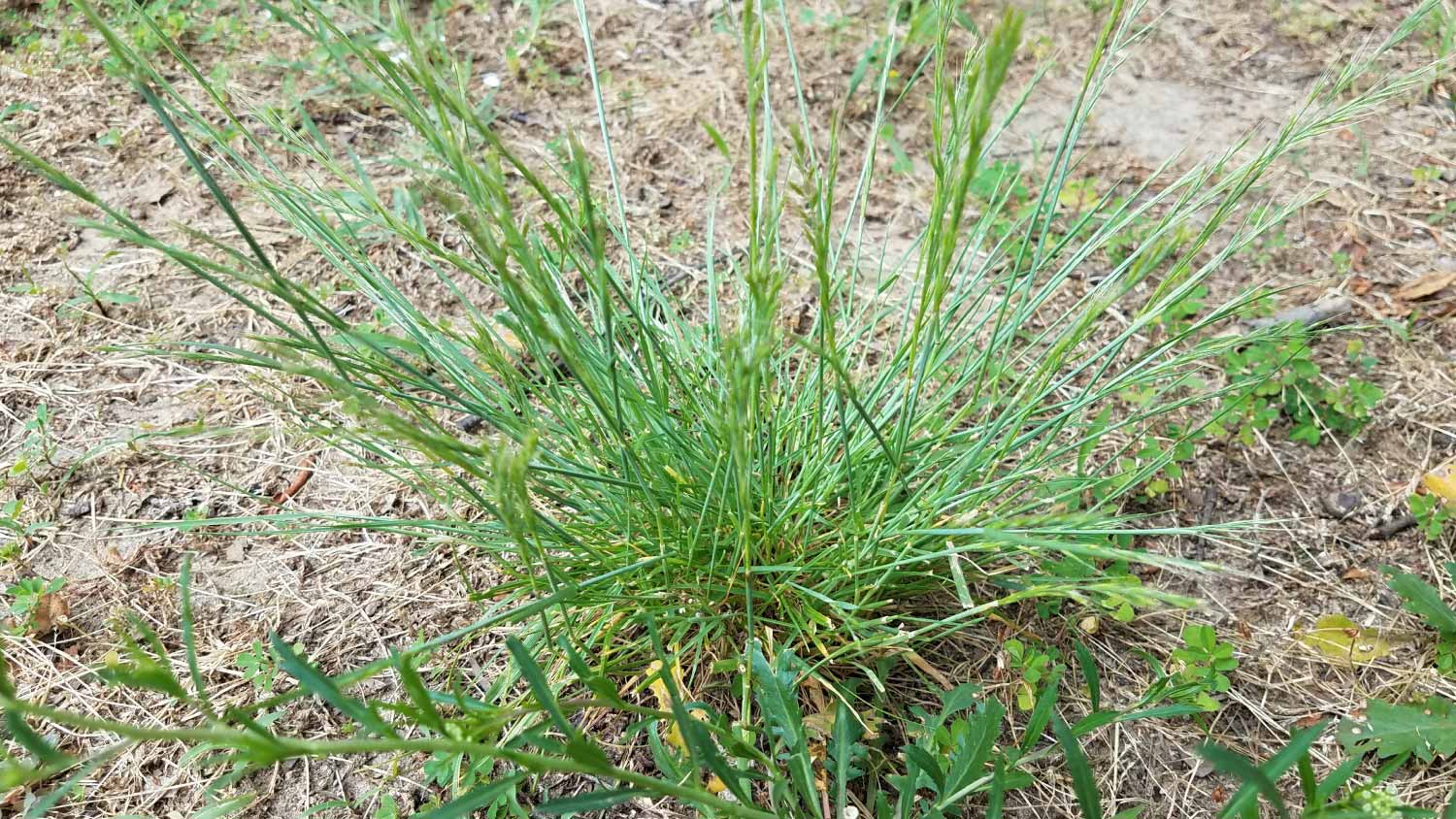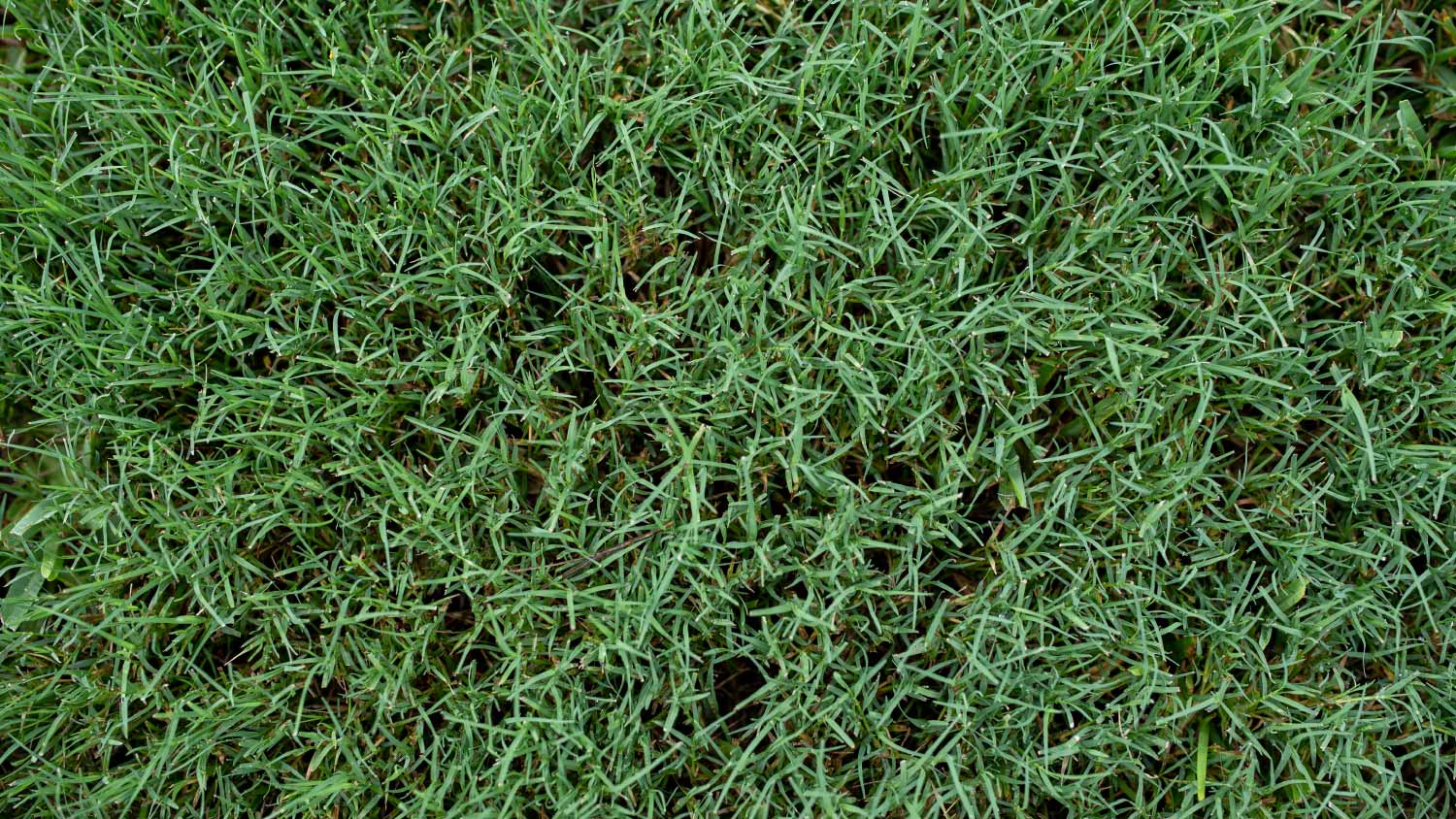
Your total lawn care cost depends on several factors, including the type of service and lawn size. Our guide will cover what you can expect to pay for lawn care.
Learn how to distinguish the turf from the weed


Bermuda grass and crabgrass grow exceptionally quickly to overtake a landscape.
Crabgrass is an undesirable weed, while Bermuda grass is a common option for lawns.
Bermuda grass goes dormant in winter, while crabgrass dies after one season.
Crabgrass produces a large number of seeds that can remain in soil for years.
While crabgrass and Bermuda grass share similarities in their rapid growth and ability to overtake a landscape, their ultimate impact on your lawn couldn’t be more different. Bermuda grass forms a dense, vibrant, and desirable turf, although it spreads rapidly and can encroach if not maintained. Crabgrass also spreads rapidly but is universally shunned as a weed. So, what distinguishes these two grasses? Here’s how to tell the difference between crabgrass vs. Bermuda grass.

Bermuda grass is a perennial grass with a vivid green hue that thrives in warm environments and goes dormant during the colder months. Crabgrass, which ranges in lighter green to purple shades, begins its life in the spring or early summer and dies in the fall and winter.
The leaves of Bermuda grass are thin and wiry with a texture that’s fine to medium. Crabgrass leaves are broader and coarser. Bermuda grass grows quickly through above-ground stolons and underground rhizomes to cover barren areas creating an even lawn, while crabgrass stems branch out from a central location.
Bermuda grass is resilient and a common option for lawns, sports fields, and golf courses. Crabgrass is considered a weed and is not intended for any of the above, as it competes for water, space and nutrients of more desired grasses.

Crabgrass is a type of grass that is considered a weed. Its flat, broad leaves grow in clusters that protrude out from the center, much like the legs of its namesake crustacean. Crabgrass thrives in compacted soil and areas with poor lawn care practices. If you need help removing crabgrass from your yard to make room for more appealing grass varieties, such as Bermuda grass, consider hiring a local lawn care professional to tackle the task.
| Pros | Cons |
|---|---|
| Quick coverage | Considered a weed |
| Tolerates poor soil conditions | Grows in unsightly clumps |
| Adaptable to a range of soils | Crowds and out-competes desirable turf |
Best for:
Lawns in need of quick coverage
Areas where grass struggles to establish
There aren’t many pros to crabgrass—most people dislike it and will try to get rid of it. Still, it can bring a touch of green to otherwise barren land, as it can grow despite soil that is compacted or devoid of nutrients. Crabgrass also grows fast, which may be a benefit for those seeking rapid coverage.
While it’s not classified as a type of noxious weed, Crabgrass is considered a weed. In most cases, it grows where it isn’t wanted, and rapidly so. Plus, it grows aggressively once established, often crowding desirable turf grass and out-competing it for nutrients from the soil.

So, what is Bermuda grass? Bermuda grass is a popular warm-season turf grass prized for its fine texture, dense growth, and hardiness against foot traffic. It’s a common choice for Southern and coastal regions that have hot summers and mild winters.
| Pros | Cons |
|---|---|
| Withstands heavy foot traffic | Low cold tolerance |
| Fast growth rate | Can be difficult to contain |
| High drought tolerance | Low shade tolerance |
Best for:
Warm climates with little to no frost periods
High-traffic lawns
Golf courses
Soccer fields
Besides its vibrant color and thick, carpeting growth, a key benefit of Bermuda grass is its ability to withstand heavy foot traffic. When trampled, it’s quick to bounce back, making it ideal for high-traffic lawns and sports fields. Additionally, it has a very quick growth rate, so it can quickly fill in bare and patchy areas.
Bermuda grass is also renowned for its exceptional drought tolerance, thanks to its deep and extensive root system. This root system enables the grass to access moisture from deeper layers within the soil, allowing it to withstand longer periods of drought than other warm-season grasses.
Bermuda grass has very low cold tolerance and can’t grow in shade, so it’s limited to thriving only in warm, sunny conditions. Its fast-growing nature can be a disadvantage since its spread is difficult to control. It commonly encroaches on gardens, raised garden beds, and other unwanted areas. Plus, its deep root system can get tangled in landscape fabrics and be extremely difficult to remove.
Another potential downside of Bermuda grass is its tendency to go dormant and turn brown during cooler months. While this dormancy is a natural response to environmental stressors that helps the grass conserve energy, it can detract from its visual appeal. Since Bermuda grass has exceptionally low cold tolerance, it tends to go dormant earlier than other grass types in cooler climates.
There’s not much competition here: Bermuda grass is considered one of the desirable types of grass for lawns, while crabgrass is known as a weed. Here’s how to differentiate between crabgrass vs. Bermuda grass.
Bermuda grass has thinner, finer leaves that are medium to dark green. Under warm, sunny conditions and with proper care, it forms a dense, lush turf carpet. Crabgrass has a light to yellowish-green color and grows in clumps rather than forming dense turf.
Bermuda grass has thinner, finer blades that are softer than crabgrass. The spindly leaves of crabgrass are coarse and rough to the touch.
Both Bermuda grass and crabgrass have exceptionally fast growth rates. In most cases, this is a pro for Bermuda grass and a major con of crabgrass. However, one of the benefits of regular lawn aeration and proper upkeep is it can slow the growth of crabgrass and prevent it from taking over a healthy lawn.
One major difference between crabgrass vs. Bermuda grass is their root systems. Bermuda grass is known for its deep root system. Contrastingly, crabgrass has a very shallow root system.
Unlike most grasses, crabgrass can thrive in compacted soil and areas with poor lawn care. Under these conditions, it can overtake most other types of grass. Bermuda grass has limited adaptability, as it can only thrive in healthy, aerated soil, full sun, and warm weather.
Figuring out how to remove grass for both grasses can prove extremely challenging, as Bermuda grass has a deep root system and crabgrass has an extremely aggressive growth rate. In either case, hiring a lawn care service may be necessary to aid with removal. Get in touch with a local lawn care service to learn more about your options.
Very high quality and professional. Job was done. I really recommend this crew
He was absolutely amazing to work with. The price was good and the quality of his work was like no other! Definitely going to be hiring him for future work!
1904 did an amazing job! I asked for some interior work for my office space and they exceeded my expectations. Abraham was the one who worked on this project. He was very kind and has great communication. I will definitely call them back if I need another job done!
I highly recommend Home Prof Painting Pros for their dedication to excellence, efficient communication, and skilled execution. My home has been transformed, and I couldnâ  t be happier with the outcome.
service was excellent I'm satisfy
EXCELLENT company that is owner operated ( unlike the big box stores! ) The owner Michael McSwain is the third generation of his family doing professional flooring. He KNOWS floors! On top of that, he is a genuinely nice man. QUALITY work, delivered on time and job done as promised. ...
I had complete trust in Sam the moment I met him and he executed an incredibly professional and efficient move for me.
From average costs to expert advice, get all the answers you need to get your job done.

Your total lawn care cost depends on several factors, including the type of service and lawn size. Our guide will cover what you can expect to pay for lawn care.

How much it costs to rent a lawn aerator depends on what kind you rent and how long you rent it for. Read on for the full details.

The cost to reseed a lawn can vary depending on the size of your yard and the condition of the soil. We’ll help you figure out the true cost of reseeding or overseeding your lawn, along with whether or not you should hire a professional.

Discover what lime does for grass, how it can help improve your lawn, and when and how to apply it for the most effective results.

Want to know how to get rid of Johnsongrass in your lawn? Here’s how to control this noxious weed, from identifying this invasive grass to using chemicals against it.

Find out when and how low to mow your grass to get a full, healthy lawn. Get tips for measuring, mowing frequency, and more with this handy guide.